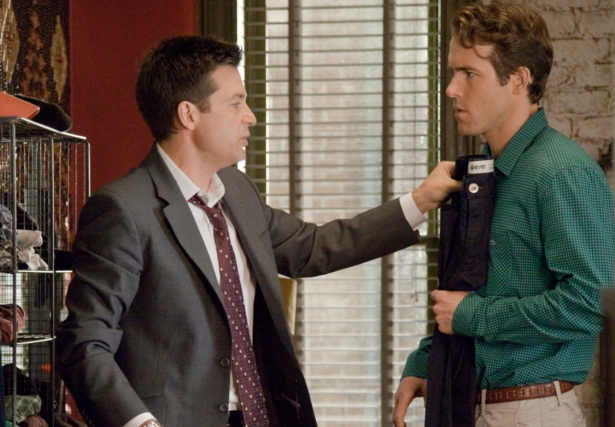From 'Freaky Friday' to 'The Change-Up,' it's a film trope: swap lives to deliver moral messages
Universal Pictures
We all want to be somebody. Sometimes, we want to be somebody else. Fiction has long tapped into the universal, if occasional, yearning to inhabit a new life: Shakespeare fixated on mistaken identity and gender-swapping, science fiction explores what happens when humans become more than human, and fairytales offer the promise of trading in rags for riches.
The Change-Up, released Friday, is the latest entry in a long but strange line of transformation fiction that focuses specifically on people trading lives with one another. Even more narrowly, it's a body-swap film, in which the brains of a burnt-out dad (Jason Bateman) and an aimless playboy (Ryan Reynolds) get zapped into each other's heads when lighting strikes a fountain that the two men happen to be peeing in (it's all in the trailer). Think of it as the bromantic version of Freaky Friday, or a supernatural take on The Prince and the Pauper.
Inevitably, films of this sort double as fables, teaching lessons about life, identity, and society. The moral of the story generally breaks down into one of five broad categories; find out what they are—and which films, from 17 Again to The Parent Trap, deliver them—below:
We want to hear what you think about this article. Submit a letter to the editor or write to letters@theatlantic.com.

